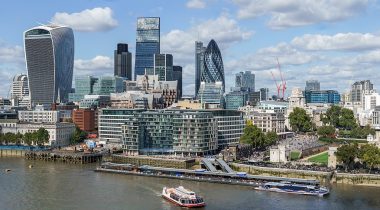
John Christensen ■ Nixon-era laws have shaped western racism and protected ‘enablers’ of financial crimes

This guest blog written by Dr Mary Alice Young of the University of the West England proposes that in the aftermath of Covid-19, Western governments must redress antiquated and inherently racist organised crime control laws
By Dr Mary Alice Young*
Organised crime is not homogeneous, and is wrongly assumed by many policy makers to be so. This flawed perception of what constitutes organised crime is why countries struggle with ineffective, outdated, organised crime control laws; modern laws which have been constructed around the historical and prohibitionist Nixonian “drug war” template from the 1970s – including the Organized Crime Control Act, the Comprehensive Drug Abuse Control Act and the Bank Secrecy Act (the latter forming the foundation of today’s global anti-money laundering regime) – and which are therefore predicated on the notion that all types of organised crimes groups operate in a similar manner to drug trafficking organisations; that organised crime exists as an external threat linked to minority and ethnic groups; and that the activities carried out by these illicit business ventures must therefore be treated in a similar manner to drug trafficking offences.

Added in to this continuing and incorrect perception of organised crime, is the fact that the definition of the concept itself is fraught with various national, regional and international interpretations which are embedded into global legal systems. Such interpretations of organised crime into the legal systems of countries, also encompass the assumption that Western efforts to control drug trafficking are the blueprint of so called “good practice”. Yet none of us are any the wiser as to what organised crime is and how to curtail it and efforts to halt its spread remain largely ineffective.
With my colleague Dr Michael Woodiwiss (IASOC Distinguished Scholar), I have written about and published critical works on the conceptualisation of organised crime and its control using primary archival data and empirical data in the form of interviews, most recently in our article “A world fit for money laundering: the Atlantic alliance’s undermining of organized crime control”. We have explored and continue to explore the processes which have contributed to present day organised crime control laws including those which are designed to combat a myriad of financial frauds and crimes (namely, the global anti-money laundering template).

Norm shaping, in this context relating to the creation of principles designed to regulate the activities of criminals, rests upon historical and United States (US) borne assumptions of what constitutes organised crime. The exportation of organised crime control laws from Western countries, to vulnerable countries such as those in the Global South, for example Jamaica and other small island developing states, means that such countries are forced to adopt inflexible, inappropriate and often irrelevant policies.
In Jamaica, the interviews I carried out highlight that the main concerns for law enforcement involve the illicit trafficking of firearms from the US (where they are manufactured) to Jamaica – where they are used, often ending in the tragic loss of Jamaican lives. However, the immediate concerns of Jamaican law enforcement officials and policy makers, are superceded by the priorities of the US which views the lotto scam (a type of advance fee fraud) as a paramount concern because it victimises US citizens and thus is seen as a direct threat to the US, yet conversely does not consider the need to examine the illicit traffic of firearms leaving its ports. Laws, policies, reports and agreements, are therefore tailored to suit the country wielding the greatest financial and political power at the global level, and so remains the fixed narrative left over from the Nixon era, that organised crime cannot be home-grown but is carried out by those belonging to ‘The Other’ – groups which are viewed as not belonging, being different, and existing outside of what is considered acceptable or normal.
It could be observed that organised crime control laws rest upon inherently dangerous perceptions of what ‘The Other’ constitutes. Especially given that from the outset, the US war on drugs was a tactical decision by the Nixon Administration to damage the Black community and conceal anti-democratic and radical tendencies within the American state. This fact was stated by Nixon’s former domestic policy adviser John Ehrlichman who stated in a 1994 interview with Dan Baum, that the Nixon White House had two enemies, these being the anti-war left and black people; by associating marijuana and heroin with those communities, the White House could criminalise them and therefore cause the disruption of those communities.
In reality, organised crime cannot be neatly shoehorned into conveniently labelled boxes depicting characteristics such as race, religion and vocation – although we have the popular media and Hollywood to thank for those demonising stereotypes. Organised crime is adaptive, flexible, exploitative and sometimes rather mundane.
Organised crime moves with us in everyday life: walking the streets with us and constructing the buildings we utilise, keeping corner shops stocked, manicuring the nails of hands up and down the country from Aberdeen to Axminster, cocooning some of us in a false sense of security by offering a chemically induced escape from the everyday, and allowing some of us to purchase rare works of art, animals and antiquities. It allows some of us to live a life of unquestionable luxury, and others just to survive on a daily basis.

Organised crime allows the purchasing of everything from breasts and Botox to trainers and takeaways. Organised crime does not limit itself to class, wealth or status, and we only need to revisit the recent Panama and Paradise Papers to know that the economically and socially elite are as important to the process of illicit money movement, as the local drug dealer is to the dispersal of synthetic drugs on a council estate in the West Midlands.
The vital role of “white collar” enablers in helping to perpetuate organised crime, was recognised forty five years ago by the United Nations at its Fifth Crime Congress on the 1 September 1975, in Geneva, Switzerland. On the table for discussion was the issue of ‘Crime as Business’ which incorporated sub-discussions on ‘Organised Crime, White Collar Crime and Corruption’. The Secretariat concluded in their final report, that in the context of organised crime as business, criminal activities were characterised by those of a high social status – often possessing considerable political power – which enabled them to use or misuse legitimate techniques in business and industry, and therefore remain undetected and invisible.
The recent financial scandals reported in the news are evidence of the fact that the movers and shakers in the world of criminal money management, largely fall outside of ‘The Other’ classification, and often represent individuals more closely associated with the American norm of “white” middle-class America and who prioritise consumption, pleasure and the accumulation of wealth – those who are best placed to circumnavigate the anti-money laundering and organised crime control laws. This is a section of society which was favoured by Nixon’s administration in 1970 and remains so by the Trump administration fifty years later.
As the Covid-19 pandemic wreaks havoc across the globe, recent events following the tragic death of George Floyd at the hands of US law enforcement officers, remind us that the devastating legacy of Nixon’s war on drugs lives on.
The racism, brutality and bigotry directed at the Black community has been normalised under the guise of so-called crime control laws and criminal justice (and has further been widened to apply to anyone who does not fit the accepted social norms so visibly promoted in the West); the dichotomy between the treatment of white collar criminals able to funnel unquantifiable amounts of filthy money through Western financial centres at great cost to the societies of developing nations, and low tier, opportunistic, survivalist criminals, has never been so stark.
While it is far too early to predict how organised crime control will be affected by the pandemic, I urge all governments in the aftermath of this crisis – including the UK government – to reconsider their fundamental misunderstandings of organised crime. Confusions and misunderstandings which are predicated on the aforementioned incorrect, historical perceptions built by US administrations in days gone by, but which continue to inform modern day crime control initiatives.
* Dr Mary Alice Young is a Researcher and Senior Lecturer in International Criminal Law, University of the West of England – [email protected]
Related articles
The elephant in the room of business & human rights

The Financial Secrecy Index, a cherished tool for policy research across the globe
CERD submission: Racialised impacts of UK’s ‘second empire’

UN submission sets out racist impacts of UK’s ‘second empire’

Tax injustices are eroding women’s rights in Brazil, and we need to talk about it

New Tax Justice Network podcast website launched!
Submission to the UN Independent Expert on the effects of foreign debt and human rights’ call for inputs: “Fiscal legitimacy through human rights”
7 November 2023

Como impostos podem promover reparação: the Tax Justice Network Portuguese podcast #54

Convenção na ONU pode conter $480 bi de abusos fiscais #52: the Tax Justice Network Portuguese podcast


